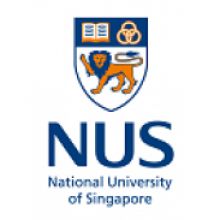University-led “improvement districts” for cities and the uses of research in combating post-industrial urban decline were among the examples of the sector’s civic engagement throughout the world discussed by international leaders.
The Times Higher Education World Academic Summit, hosted by King’s College London, heard from leaders including Cheryl de la Rey, vice-chancellor of the University of Pretoria, in a session titled “Cities and Universities – Mutual Dependency for Mutual Growth?”. The South African capital of Pretoria sees an influx of 10,000 people per month, she told the audience, mostly “economic refugees” coming from other parts of the country, which places a strain on the city.
The University of Pretoria has established an “improvement district” in the area of the city surrounding it, she said. The Hatfield City Improvement District is a partnership with the City of Tshwane Metropolitan Municipality, with all businesses in the area (including the university) paying a levy.
This funds cleaning, maintenance, security officers and CCTV all aimed at improving “basic security and safety in the area for every resident” and particularly students, said Professor de la Rey.
The university has also introduced compulsory credit-bearing modules for students in community engagement, she added.
Work here had included students setting up a health hub for homeless people, as well as working with the Department of Justice to establish community courts.
The university also has plans to “incentivise staff to set up residence in the area [around the university] instead of the suburbs”, Professor de la Rey said.
Tan Chorh-Chuan, president of the National University of Singapore, said that it was “by being global that universities such as ours can bring the greatest value to our communities”.
There is a strong drive to prioritise continuing education in Singapore, which he said was one way to ensure that public support for higher education spreads beyond the wealthier classes of society.
Continuing education offered people without previous experience of higher education the chance to “access the opportunities we provide by being global”, Professor Tan said.
Ron Daniels, president of Johns Hopkins University, noted that Hopkins was the largest private employer not just in its city of Baltimore, but in the state of Maryland.
He said that it was impossible to imagine a “strong and prosperous Johns Hopkins in a city that continues on this post-industrial decline” route.
This made it partly a question of enlightened self-interest for Hopkins to seek to improve life in the city, he argued.
This takes place via economic development through building projects, using the city’s status as a major employer and procurer of services to provide more university jobs for local people and to spend more with local businesses, as well as through applying the university’s research power to the city’s problems, according to Professor Daniels.
He cited examples of this application of research as being a project working with city authorities to ensure that all pupils in Baltimore’s public schools system have access to glasses. Another example was a Hopkins researcher who developed a model to predict solar flares in astrophysics now seeing his work used to predict which areas of Baltimore could suffer blight, Professor Daniels said.
Sir Anton Muscatelli, University of Glasgow principal, said that his institution had attempted to move beyond its location in the more affluent West End of the city by establishing a hub in the East End, particularly important in teacher education.
The institution was “anomalous” in the Russell Group in the high proportion of poorer students among its intake, and this was an “engine of social mobility” in giving local students access to the benefits that the university reaps from being a global institution, he said.
Jo Beall, director, education and society at the British Council, who chaired the session, cautioned that universities had not always been strong city planners and could run into “tensions” in their cities.
Register to continue
Why register?
- Registration is free and only takes a moment
- Once registered, you can read 3 articles a month
- Sign up for our newsletter
Subscribe
Or subscribe for unlimited access to:
- Unlimited access to news, views, insights & reviews
- Digital editions
- Digital access to THE’s university and college rankings analysis
Already registered or a current subscriber? Login












